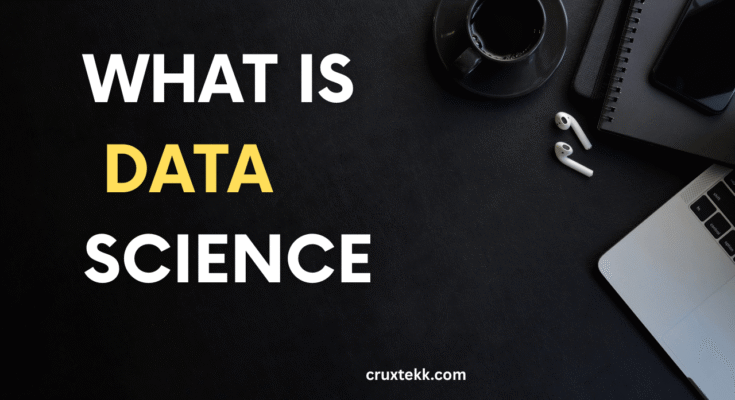In today’s digital world, data is everywhere—from social media posts and online purchases to wearable devices and business transactions. But raw data alone doesn’t hold much value. That’s where data science comes in. So, what is data science exactly, and why is everyone talking about it?
What is Data Science?
Data science is a multidisciplinary field that combines statistics, computer science, and domain knowledge to extract valuable insights from raw data. It involves collecting, cleaning, analyzing, and interpreting data to help organizations make informed decisions.
At its core, data science answers questions like:
- What happened?
- Why did it happen?
- What will happen next?
How can we influence what happens?
Key Components of Data Science
- Data Collection: Gathering data from various sources such as databases, APIs, or sensors.
- Data Cleaning: Removing errors and inconsistencies to ensure quality.
- Data Analysis: Using statistical methods and algorithms to uncover patterns and trends.
- Data Visualization: Presenting data through charts and graphs for easy understanding.
- Machine Learning: Training algorithms to make predictions or automate tasks.
- Decision Making: Using insights to guide business strategy or product development.
Applications of Data Science
Data science is used in nearly every industry, including:
- Healthcare: Predicting disease outbreaks, personalized treatment plans
- Finance: Fraud detection, algorithmic trading
- Retail: Customer segmentation, demand forecasting
- Marketing: Targeted advertising, sentiment analysis
- Sports: Performance analytics, injury prediction
Why is Data Science Important?
- Helps businesses optimize performance
- Enables data-driven decision-making
- Automates routine tasks through AI and machine learning
- Enhances customer experience and personalization
- Drives innovation across industries
Tools Commonly Used in Data Science
- Programming Languages: Python, R, SQL
- Libraries & Frameworks: Pandas, NumPy, Scikit-learn, TensorFlow
- Visualization Tools: Tableau, Power BI, Matplotlib
- Databases: MySQL, MongoDB, Hadoop
Who Can Become a Data Scientist?
If you have a passion for numbers, problem-solving, and storytelling with data, you can become a data scientist.
Most professionals in this field have backgrounds in:
- Computer Science
- Statistics or Mathematics
- Engineering
- Business or Economics
FAQs: What is Data Science
Q1. Is data science hard to learn?
It can be challenging at first, but with consistent practice and the right resources, anyone can learn data science.
Q2. Do I need a degree to become a data scientist?
While a degree helps, many successful data scientists are self-taught or have completed online certifications.
Q3. What’s the difference between data science and data analytics?
Data analytics focuses on analyzing historical data, while data science includes prediction, machine learning, and deeper data modeling.
Q4. How much do data scientists earn?
According to various job portals, data scientists often earn between $80,000 to $150,000 annually depending on experience and location.
Q5. Can I learn data science online?
Absolutely! Platforms like Coursera, edX, Udemy, and DataCamp offer comprehensive data science courses.
Conclusion
Understanding what data science is opens the door to one of the most in-demand fields of the 21st century. With data becoming more valuable than ever, learning data science not only boosts your career but also empowers you to solve real-world problems using the power of data.




